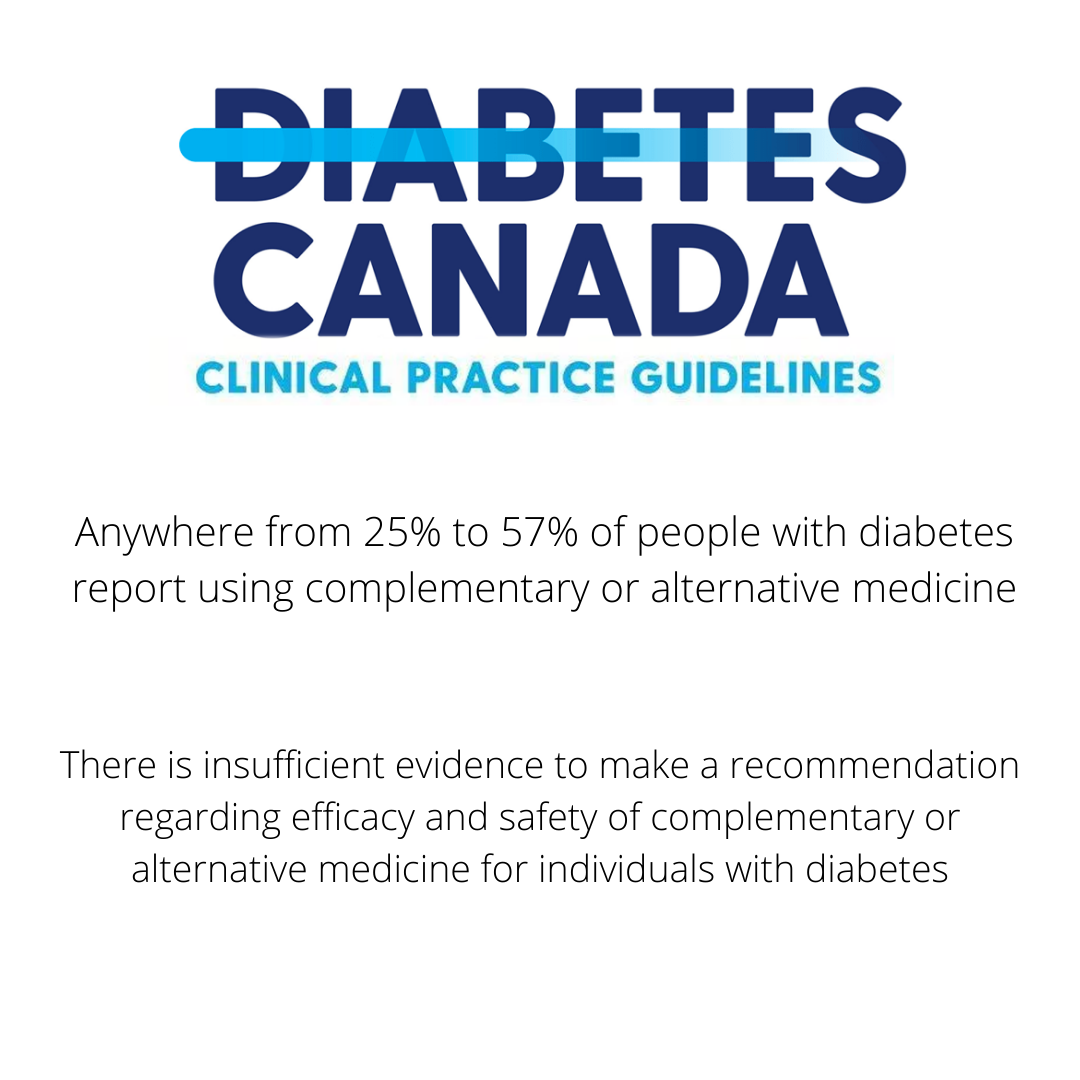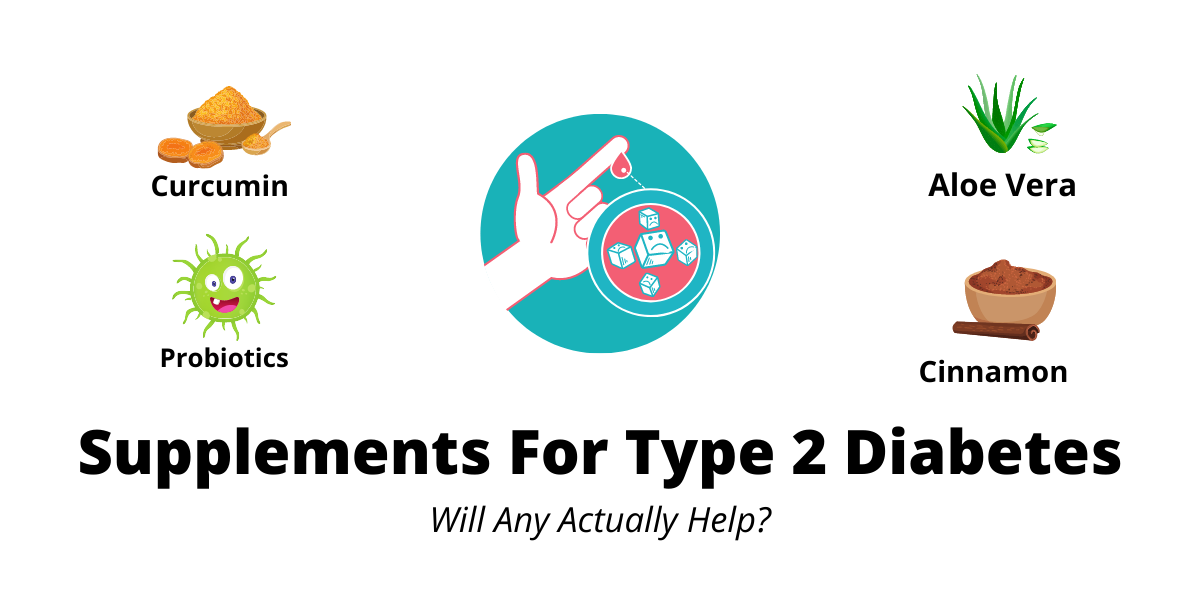As I continue to promote my latest 30-Minute Type 2 Diabetes Cookbook, I want to offer up as much additional value and insight as I can via my blog and speak on some of the salient subject matter that did not make its way into the book.
That brings us to the topic of supplements, which I know beyond reasonable doubt represent a topic of great interest among the general public.
As you can see by the infographic below, this remains true as well for those living with diabetes.

Not to spoil the story for you, but Diabetes Canada certainly has not encountered evidence of sufficient quality and quantity to feel confident enough to recommend any specific supplements as truly efficacious for those living with diabetes.
In my professional estimation the strongest candidate is psyllium fibre, which I’ve discussed in a previous post.
Today, however, I will briefly touch on four other supplements that have been studied for use in the context of diabetes management but for which the state of the evidence is insufficient to strongly encourage their use.
In other words, I am not advocating or endorsing the supplements below but merely highlighting the fact that they have indeed been studied to some reasonable extent.
Let’s take a closer look.
Probiotics: As per the acclaimed Lancet journal, an imbalance between good and bad gut bacteria (dysbiosis) may play a role in the development and progression of diabetes.
Systematic reviews & meta-analyses out of both Advances In Nutrition and Nutrition Reviews identified that probiotic supplementation, especially in those with the most poorly controlled blood sugar levels, may offer some benefits to individuals living with diabetes but there is a lack of clarity in the currently available evidence to be able to properly recommend a specific strain/dosage.
Aloe Vera: Often thought of as a skin balm, oral aloe vera has been studied for a potential blood sugar reducing benefit in both pre and type 2 diabetes.
The quality of the evidence is not particularly strong, but multiple meta-analyses across different journals ( 1,2,3) have identified some potential for a fasting blood glucose and A1C lowering effect of oral aloe vera.
It could represent a topic of future inquiry, but the state of the evidence at the moment remains insufficient.
Cinnamon: Similar to aloe vera, cinnamon supplementation is a novel topic of inquiry in the world of diabetes supplements.
There have been multiple meta-analyses (1,2,3) published demonstrating a modest positive effect on blood sugar levels in those living with pre and type 2 diabetes, but the quality of the evidence is not decisive.
Curcumin: The bioactive component of turmeric and a topic on which I’ve written on previously, curcumin is one of those supplements that is similar to probiotics in the sense that it has demonstrated efficacy for use in specific contexts.
Whether or not diabetes is one of them, that’s a slightly different story.
A 2021 meta-analysis out of the Nutrients journal found some limited evidence that curcumin supplementation could improve some markers of glycemic control – findings which are supported by another 2021 systematic review and meta-analyses.
Final Thoughts
The supplements discussed in today’s article, while intriguing, do not represent your primary path towards a better quality of life living with pre or type 2 diabetes.
Strategic optimization of your diet continues to be the best practice when it comes to blood sugar management and certainly a dietitian like myself can be a powerful guide.
For those looking for support and a starting point, my latest book [pictured below] was developed with you in mind and represents a strong first step.
Until next time,
Andy De Santis RD MPH




